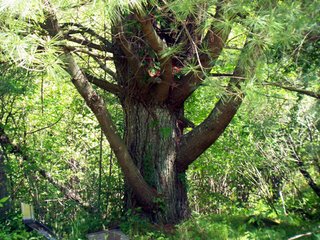Sunday, October 15, 2006
Asheville Real Estate Journal: How to Communicate in Real Estate to WIN
Asheville Real Estate Journal
By profession, I'm a business person, educator, author, poet. I am also an amateur systems scientist, currently applying what I know about this intriguing field in the practice of real estate for Stewardship in the Appalachians.
Environmentally–sensitive real estate transactions are exciting….and if you look at this arena from the perspective of an amateur systems theorist, you will know why. Systems theorists construct models of complex real-world systems.
This can be pretty mathematical, but you and I can use more pedestrian analogies and metaphors to help to explain the basic structure of optimal methods of regulating a behavior, either to maintain stability or to drive toward a desired goal state. ... such as "The Amazing Happy ECO conscious Closing Event"...
….optimal methods. ....... I wake up some nights, late...concerned that the widely held assumption that society can be regulated by a system of rules (or laws) enforced by sanctions or punishments actually creates sustainable and pleasant relationships.
But rules and sanctions are far from optimal when you are trying to communicate effectively with a number of people to produce results. I’m NOT a systems theorist, remember, but I DO know this much, rule-based systems don't support the calculation of general system models or their inverses, because they don't support a function that calls forth a simpler version of itself to arrive at a solution.
A “simpler version” -- What might that be in terms of Happy Closings producing Sustainable Relationships?
One of my heroes William McDonough, the founding principal of an internationally recognized design firm practicing ecologically, socially, and economically intelligent architecture and planning in the U.S. and abroad puts it this way:
"I believe we can accomplish great and profitable things within a new conceptual framework—one that values our legacy, honors diversity, and feeds ecosystems and societies . . . It is time for [us to design systems] that are creative, abundant, prosperous, and intelligent from the start."
####

By profession, I'm a business person, educator, author, poet. I am also an amateur systems scientist, currently applying what I know about this intriguing field in the practice of real estate for Stewardship in the Appalachians.
Environmentally–sensitive real estate transactions are exciting….and if you look at this arena from the perspective of an amateur systems theorist, you will know why. Systems theorists construct models of complex real-world systems.
This can be pretty mathematical, but you and I can use more pedestrian analogies and metaphors to help to explain the basic structure of optimal methods of regulating a behavior, either to maintain stability or to drive toward a desired goal state. ... such as "The Amazing Happy ECO conscious Closing Event"...
….optimal methods. ....... I wake up some nights, late...concerned that the widely held assumption that society can be regulated by a system of rules (or laws) enforced by sanctions or punishments actually creates sustainable and pleasant relationships.
But rules and sanctions are far from optimal when you are trying to communicate effectively with a number of people to produce results. I’m NOT a systems theorist, remember, but I DO know this much, rule-based systems don't support the calculation of general system models or their inverses, because they don't support a function that calls forth a simpler version of itself to arrive at a solution.
A “simpler version” -- What might that be in terms of Happy Closings producing Sustainable Relationships?
One of my heroes William McDonough, the founding principal of an internationally recognized design firm practicing ecologically, socially, and economically intelligent architecture and planning in the U.S. and abroad puts it this way:
"I believe we can accomplish great and profitable things within a new conceptual framework—one that values our legacy, honors diversity, and feeds ecosystems and societies . . . It is time for [us to design systems] that are creative, abundant, prosperous, and intelligent from the start."
####




